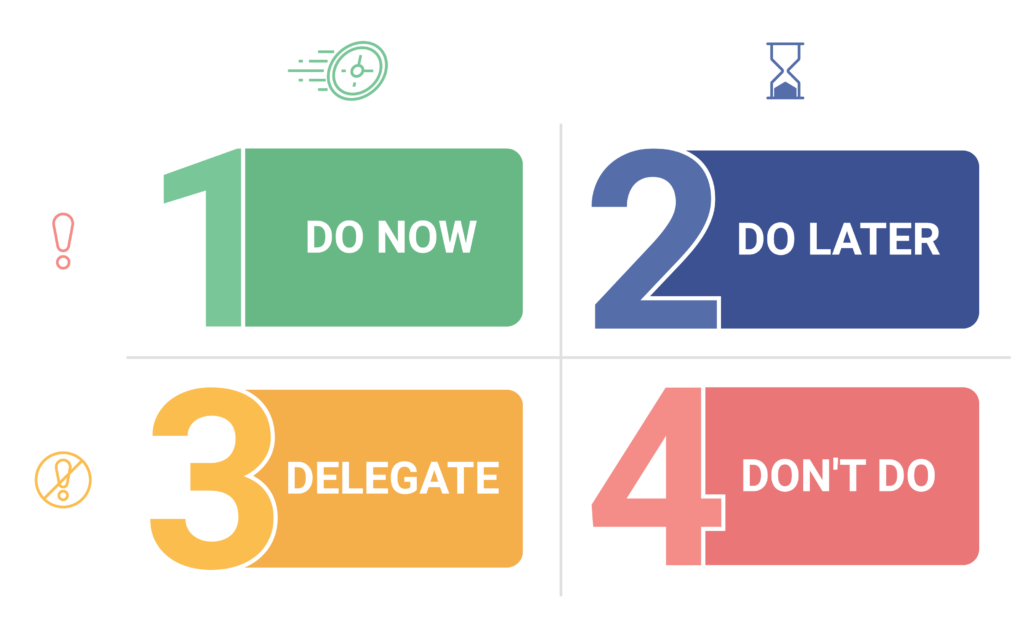15 Tips for Working with Remote Developers
In general, when working with remote developers, companies should strive to:
- Establish Communication With the Team
- Stay In Constant Contact
- Make Schedules Convenient for Everyone
- Provide Multiple Communication Channels for Your Remote Team
- Make Use of Project Management Tools
- Keep Goals Clear
- Know How to List Priorities on the Project
- Do Not Micromanage
- Be flexible With Your Management Approach
- Create a Trustful Environment
- Respect Cultural Differences
- Allow Everyone to Speak
- Don’t Forget About NDAs and Security Clearances
- Improve Your Workflow With the Feedback From Your Remote Team
- Remember Your Goals but Also Keep Developers' Needs in Mind
Let’s imagine that you are the CEO of a small or medium-sized company in the logistics industry who is currently making moves towards building a tracking system for your business. One way to achieve this aim within a reasonable budget would be to hire remote software developers. That being said, if you have never worked with remote developers in the past, the idea may seem both intimidating and challenging. After all, in addition to dealing with an entirely new process, when working with remote developers, you might also have to contend with a linguistic, cultural, or perhaps even a technical divide.
In reality, however, while some or all of these factors may unavoidably come into play, the specific challenges you face will not only depend on your company’s position, but on the type of setup you choose to implement — which in turn will depend on your company’s in-house expertise and capacity.

Types of Remote Development
End-to-End Delivery
For example, if you are hiring an end-to-end supplier, all you will have to do is provide them with your initial concept and allow the company to take care of your problems. More likely than not, they will appoint their own manager to oversee project delivery from start to completion, and keep you informed throughout the product’s development.
Team Augmentation
On the other hand, if you are opting for a more hybrid approach, you may prefer to have your own project manager directly involved in the product’s development, while external hires simply follow their instructions.
Whichever route you choose to take will of course depend on a variety of factors, and result in dissimilar priorities. Nevertheless, what every form of remote work will certainly have in common is they will each involve a measure of trust.
So with all of these things in mind, if you are considering working with external suppliers and are hoping to become an exemplary customer, here are 15 helpful tips for businesses to keep everything running like clockwork:
15 Tips for Working With Remote Developers
1. Establish Communication With the Team
Communication is the most important aspect of any successful remote development strategy. This is why companies hiring remote workers today should acknowledge the need to build a strong foundation for transparent communication. Above all, this means that when working with remote web developers especially, it is critical to get the tone right — the atmosphere should be light, for instance, but unmistakably work-oriented. Otherwise, whether in information accuracy or productivity, things could quickly take a turn for the worse.
Thankfully, as we will see further down below, because we are talking about hiring in 2022, there are plenty of available tools to help your company to communicate effectively.
2. Stay In Constant Contact
With the current ubiquity of work communication platforms like Slack and Discord, whether outsourcing teams for the very first time or already a veteran to work with remote developers, you should consider making use of a chat service to ask quick questions and do away with doubts, should ever the need arise. In this way, you can save all emails for more important conversations and announcements. Just make sure that both you and your remote developers are well acquainted with the tools being utilised.
At the same time, because text is often a fallible medium (as it does not convey any intended intonation), it is important to sometimes communicate using actual spoken words as well. In fact, the most effective forms of feedback will be provided face to face. So in light of the issue of distance, a video conference might be preferable to a phone call.
3. Make Schedules Convenient for Everyone
As a rule of thumb, when it comes to working with remote developers, the less time you plan to spend interacting with your supplier, the larger the time difference you can afford to tolerate. In this way, you will avoid any unnecessary delays and keep things moving as swiftly as possible. So if you plan to work with remote developers — particularly when dealing with offshore providers — it is also critical to ensure that you are adequately synchronised in time zones. In order to do this, make sure everyone understands when you’re available, that all meetings are taking place at appropriate times and that your work hours overlap as needed, lest clashes occur and all hell break loose.
4. Provide Multiple Communication Channels for Your Remote Team
One of the best tips for managers when beginning to work with remote suppliers is you need to establish multiple communication channels. This will mostly be appreciated in the event of an emergency, though it is also useful at all other times as well. As mentioned above, Slack and Discord will likely be better for quicker explanations, but there are plenty of other available channels too. Just make sure that you are using the appropriate channel for every message:
- Microsoft Teams
- Skype
- Slack
- Zoom
5. Make Use of Project Management Tools
To manage remote developers efficiently or even create a more flexible management process, you will also need to utilise project management and time tracking tools. If your company does not currently make use of any of these, then you should probably ensure your developers do and that their current selection is in alignment with your needs. This will help you create an effective workflow. Gathered below are some of the most common time management and progress tracking tools that are currently available on the market:
- Monday
- OpenProject
- Trello
- Tahometer
- Zoho Projects
- Miro
6. Keep Goals Clear
When managing remote developers, make sure your goals are also clear from the get-go so that everyone remains on the same page. It’s important to communicate clearly what the project manager is hoping to achieve to not only avoid conflict and confusion, but ensure all tasks are performed on time. For example, you should have a thorough understanding of your company’s expectations, concrete goals and project deadlines. Such measurable and tangible objectives ensure your remote team won’t be caught off guard.
7. Know How to List Priorities on the Project
If left to their own devices, remote web developers are likely to prioritise based on nothing but the complexity of requirements. By contrast, only a manager or business analyst will be equipped to prioritise tasks according to business or marketing needs. There are of course multiple ways to do so, one of which is to utilise the Eisenhower Matrix (also known as the Urgent-Important Matrix). By placing all desired features into one of four simple categories, you can markedly improve your work with remote developers:

8. Do Not Micromanage
While the temptation to do so at a distance is great, the well-established inefficiencies of micromanaging — that is, excessively interfering in the work of others — are not to be underestimated, as they can affect even the best remote developers. The practice not only won’t help you manage remote teams effectively, but it will also rob developers of the autonomy they need to stay motivated, and to deliver their work on time. Furthermore, no amount of dedication and passion will offset a lack of trust in your company’s leadership. So while managing remote developers may for some be a tricky business, one of the best tips for managers we can muster is to let employees get on with their work.
9. Be flexible With Your Management Approach
To help your work with remote developers go smoothly, it is important to give your employees the flexibility to succeed by also showing yourself ready to adapt. For instance, if you have a specific idea for your project in mind — especially if it’s technical in nature — Managing Remote Teams Best Practices 101 would be to never force it upon your developers, but instead to politely suggest it. After all, oftentimes, they will be able to act exactly as you have wanted, but be open to hearing any technical objections.
At the same time, though with the help of modern technologies, their own skills and an individual approach, your software developers should be able to meet your deadlines, if for whatever reason they are unable to do so, do not immediately rush into punishment mode. Instead, try to first understand what’s behind the hold-up and how they plan to make it up to you in the long run. This is where trust will become especially important.
10. Create a Trustful Environment
Speaking of trust, it is the very foundation of every successful remote team. This means that if you are looking to hire a remote developer, you should first strive to create a trustful environment. By focusing on empathy and transparency, for example, you will empower your team members to voice their concerns. After all, even the best remote developers are still human, so if they feel that they’ll be attacked or judged, they are likely to keep schtum when you need them — which may cause further issues down the line.
11. Respect Cultural Differences
When working with remote web developers, you will probably also have to interact with people from different cultures, so don’t be ignorant of the cultural differences. In certain countries, for instance, the work week will begin on a Sunday, while every Friday will mark the start of the weekend. At the same time, some cultures may view different holidays as sacred and you should strive to respect their right to recover and to recuperate on those days too. That being said, feel free to ask in advance what dates will be affected by these differences and to clarify if they will impact the roadmap.
12. Allow Everyone to Speak
Now, when it comes to providing feedback, it is important to show you respect your team. You can do this by balancing the positives and negatives, being mindful of your body language and always avoiding any personal attacks. In addition, you should view feedback as a two-way street and always allow your remote software engineers to speak. In any case, of course, the manager will be free to make the final decision, but by giving everyone the chance to share, you will ensure your remote developers feel valued and encourage them to stay actively involved.
13. Don’t Forget About NDAs and Security Clearances
Non-disclosure agreements, or so-called NDAs are not just for big companies. They are a standard agreement between a number of different parties to protect sensitive or confidential data and keep information between companies and suppliers. So if you would like to hire remote developers, do not hesitate to have an NDA in place, and make sure they accept the terms and conditions you have set for them.
14. Improve Your Workflow With the Feedback From Your Remote Team
As explained in point 12 above, to manage remote teams effectively, you have to be open to receiving feedback, as this is one of managing remote teams’ best practices. On that note, it is always beneficial to see your process from someone else’s perspective, and many programmers will be natural problem solvers. So for companies hiring remote workers today, this may also be a great opportunity to finally improve your organisation’s workflow.
15. Remember Your Goals but Also Keep Developers’ Needs in Mind
Finally, remember to prioritise your developers’ technical debt suggestions as well as any architectural changes that may not immediately bring noticeable business value, as these are all aimed at improving your solution’s overall resilience, security and performance. In addition, upon reaching an important milestone, don’t be shy to thank your remote developers — simple words of gratitude from yourself or the end users within your organisation will typically go a long way, as they are generally both rewarding and motivating.
Conclusion
So in the end, for company CEOs or managers, is it harder to work with remote programmers? The answer will depend on your company’s flexibility, because in order to make the most of their benefits, you will undoubtedly need to make some adjustments. Still, once these are all successfully in place, you will be able to take advantage of the versatility and efficiency of remote developers.
Hire Remote Developers From Software Planet
If you are interested in working with remote developers, why not get in touch with SPG today?
Tell Us About Your Project


